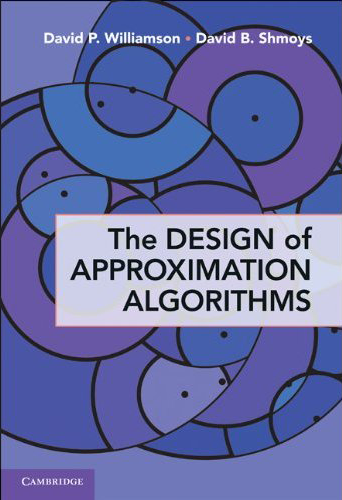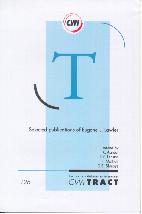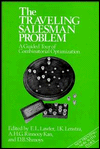Books
Jan Karel Lenstra and David B. Shmoys.  "Elements of Scheduling". CoRR abs/2001.06005 (2020)
"Elements of Scheduling". CoRR abs/2001.06005 (2020)
In the winter of 1976, Alexander Rinnooy Kan and Jan Karel Lenstra defended their PhD theses at the University of Amsterdam. Gene Lawler was on their committees. It was a natural idea to turn the theses into a textbook on scheduling. They set out to compile a survey with Ron Graham (1979), but progress on the book was hampered by the many research opportunities offered by the field. After David Shmoys joined the team in the mid 1980's, several chapters were drafted, and the survey was rewritten (1993). Gene passed away in 1994. Colleagues were asked to contribute chapters or to complete existing drafts. However, by the turn of the century the project was losing its momentum, and finite convergence to completion fell beyond our reach.
Over the years, several chapters have been used in the classroom. We continue to receive requests from colleagues who look for a text on the elements of scheduling at an advanced undergraduate or early graduate level. This document is a compilation of what currently exists. We have made a marginal effort in patching it up at some places but is essentially what was written long ago. We did make an attempt to include most of the citations in the bibliography.
D.P. Williamson and D.B. Shmoys.  "The Design of Approximation Algorithms". Cambridge University Press, 2011.
"The Design of Approximation Algorithms". Cambridge University Press, 2011.
Discrete optimization problems are everywhere, from traditional operations research planning problems, such as scheduling, facility location, and network design; to computer science problems in databases; to advertising issues in viral marketing. Yet most such problems are NP-hard. Thus unless P = NP, there are no efficient algorithms to find optimal solutions to such problems. This book shows how to design approximation algorithms: efficient algorithms that find provably near-optimal solutions. The book is organized around central algorithmic techniques for designing approximation algorithms, including greedy and local search algorithms, dynamic programming, linear and semidefinite programming, and randomization. Each chapter in the first part of the book is devoted to a single algorithmic technique, which is then applied to several different problems. The second part revisits the techniques but offers more sophisticated treatments of them. The book also covers methods for proving that optimization problems are hard to approximate. Designed as a textbook for graduate-level algorithms courses, the book will also serve as a reference for researchers interested in the heuristic solution of discrete optimization problems.
 K. Aardal, J.K. Lenstra, F. Maffioli, and D.B. Shmoys (eds.). Selected publications of Eugene L. Lawler. CWI, 1999.
K. Aardal, J.K. Lenstra, F. Maffioli, and D.B. Shmoys (eds.). Selected publications of Eugene L. Lawler. CWI, 1999.
This volume is intended as a scientific and personal memorial to the late Gene Lawler, who passed away at the age of 61 in 1994. It contains a complete list of his publications, and a selection of 26 techical and expository papers.
 E.L. Lawler, J.K. Lenstra, A.H.G. Rinnooy Kan, and D.B. Shmoys (eds.). The Traveling Salesman Problem. Wiley, Chichester, 1985.
E.L. Lawler, J.K. Lenstra, A.H.G. Rinnooy Kan, and D.B. Shmoys (eds.). The Traveling Salesman Problem. Wiley, Chichester, 1985.
The traveling salesman problem has served as the testbest for virtually every known approach to combinatorial optimization problems. This textbook attempts to introduce the reader the essential elements of combinatorial optimization by focusing on just this one problem. For each approach, the corresponding chapter is written by leading figures in the area, but the book has been edited to yield a unified result.
Contact Information
David B. Shmoys
Cornell University
231 Rhodes Hall
Ithaca, NY 14853
(607) 255-9146 - phone
(607) 255-9129 - fax
